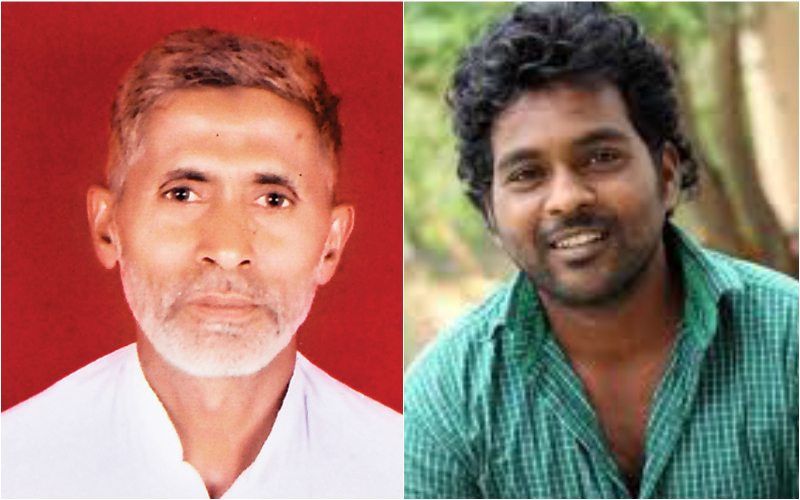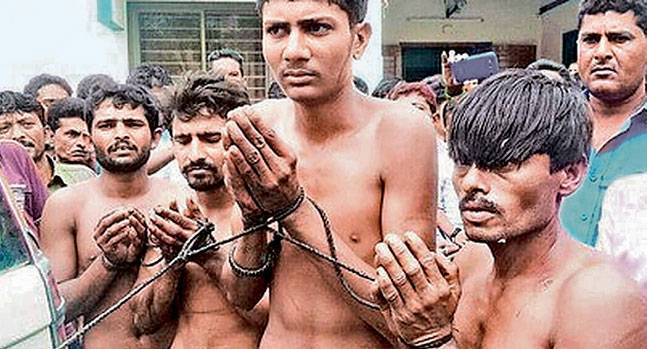

A US report states that attacks against minorities and Dalits have grown significantly since the BJP-led regime came into power
According to a report by an independent bipartisan American body, religious tolerance has deteriorated and religious freedom violations have increased in India under Prime Minister Narendra Modi’s regime. Titled, Constitutional and Legal Challenges Faced by Religious Minorities in India, the report gas been sponsored by the US Commission on International Religious Freedom (USCIRF). The report states that religious minority communities and Dalits face not only discrimination but also persecution in India where hate crimes, social boycotts and forced conversions have escalated dramatically since 2014.
“Under Congress Party and BJP-led governments, religious minority communities and Dalits, both have faced discrimination and persecution due to a combination of overly broad or ill-defined laws, an inefficient criminal justice system, and a lack of jurisprudential consistency. In particular, since 2014, hate crimes, social boycotts, assaults, and forced conversion have escalated dramatically,” said the report.

Mohammed Akhlaq and Rohith Vemula were both victims of the rising violence against minorities and Dalits in India
It also said that, “Since the BJP assumed power, religious minority communities have been subject to derogatory comments by BJP politicians and numerous violent attacks and forced conversions by affiliated Hindu nationalist groups such as Rashtriya Swayamsevak Sangh, Sangh Parivar, and Vishva Hindu Parishad.”
The report has been written by Iqtidat Karamat Cheema, Director, Institute for Leadership and Community Development (UK). The report also states that the constitutional provisions and state and national laws in India do not comply with the international standards of freedom of religion or belief. This includes Article 18 of the UN Declaration of Human Rights and Article 18 of the International Covenant on Civil and Political Rights.
The report suggests that the US government put religious freedom and human rights at the centre of all trade, aid and diplomatic interactions with India. “India is a religiously diverse and democratic society with a Constitution that provides legal equality for its citizens irrespective of their religion and prohibits religion-based discrimination,” said USCIRF chair Thomas J. Reese. “However, the reality is far different… India’s pluralistic tradition faces serious challenges in a number of its states.” He also said that, “during the past few years, religious tolerance has deteriorated and religious freedom violations have increased in some areas of India. To reverse this negative trajectory, the Indian and state governments must align theirs laws with both the country’s constitutional commitments and international human rights standards.”

Four Dalit youth were beaten up in Una, Gujarat, last year which lead to widespread protests across the country
The report made clear that India faces serious challenges to both its pluralistic traditions and its religious minorities. “Muslims, Christians, Sikhs, and Jains generally are fearful of what the future portends. Dalits also are increasingly being attacked and harassed. The Indian government-at both the national and state levels-often ignores its constitutional commitments to protect the rights of religious minorities. National and state laws are used to violate the religious freedom of minority communities; however, very little is known about the laws,” it said.
It further noted that the states of Uttar Pradesh, Andhra Pradesh, Bihar, Chhattisgarh, Gujarat, Odisha, Karnataka, Madhya Pradesh, Maharashtra, and Rajasthan tend to have the greatest number of incidents of religiously-motivated attacks and communal violence, as well as the largest religious minority populations.
It also quoted India’s Home Ministry figures, saying that in 2015, India had 751 reported cases of communal violence as compared to the previous year where there were 644 cases reported. This made it a 17 per cent rise in one year alone.
The report recommends the US government to urge the Indian government to push the states that have adopted anti-conversion laws to repeal or amend them so that they can conform to international norms. “Both, conversion and reconversion by use of force, fraud and allurement are equally bad and infringe upon a person’s freedom of conscience,” it said.
It also urged the Indian government to lift its sanctions against non-governmental organisations that have been working for the welfare of minorities in India. “Identify Hindutva groups that raise funds from US citizens and support hate campaigns in India. Such groups should be banned from operating in the United States if they are found to spread hatred against religious minorities in India,” it said.
Noting that India should not impose Hindu personal status laws on Sikh, Buddhist, and Jain communities, it said that the government instead ought to provide them with a provision of personal status laws as per their distinct religious beliefs and practices. It recommended that India adopt the International Convention on the Elimination of All Forms of Racial Discrimination. “Operationalise the term ‘minority’ in its federal laws and comply with the United Nations Declaration on the Rights of Persons Belonging to National or Ethnic, Religious, and Linguistic Minorities.”
“Drop Explanation II in Article 25 of its constitution and recognize Sikhism, Buddhism, and Jainism as distinct religions with their own separate religious identities.”
First reported by IANS(Washington)